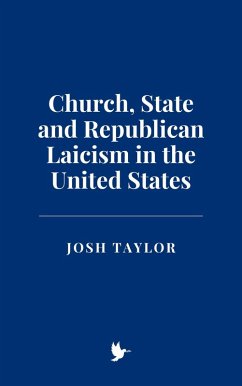The narrative begins with the philosophical and theological influences that informed the drafting of foundational documents like the Constitution and the Bill of Rights, emphasizing the principles of liberty, equality, and neutrality. It then traces the evolution of these ideals through key moments in American history, such as the Second Great Awakening, the abolitionist and civil rights movements, the rise of the Religious Right, and the cultural and legal conflicts of the 21st century. By examining landmark Supreme Court cases, influential social movements, and pivotal moments of cultural change, the work highlights how religion has both united and divided the nation, serving as a source of moral inspiration and political contention.
The analysis also addresses the increasing complexity of religious pluralism in the United States, shaped by immigration, globalization, and the rise of non-religious identities. It considers the role of technology and media in transforming religious practices and discourses, as well as the impact of global challenges like climate change and migration on the intersection of faith and policy. Throughout, the work emphasizes the resilience and adaptability of republican laicism, offering a nuanced exploration of its potential to navigate the demands of an increasingly diverse and interconnected society.
Concluding with a forward-looking perspective, this work argues for the renewal of the principles of inclusivity, neutrality, dialogue, and shared responsibility as the foundation for a "new covenant" in American democracy. By reaffirming the ideals of republican laicism while embracing innovation and pluralism, the United States can continue to uphold its commitment to liberty and equality, ensuring that religion remains a vibrant and constructive force in public life. This comprehensive study serves as both a historical reflection and a roadmap for addressing the enduring challenges of faith, governance, and coexistence in the 21st century.
Dieser Download kann aus rechtlichen Gründen nur mit Rechnungsadresse in A, B, CY, CZ, D, DK, EW, E, FIN, F, GR, H, IRL, I, LT, L, LR, M, NL, PL, P, R, S, SLO, SK ausgeliefert werden.









